License to kill: How Israeli forces murder Palestinians in Gaza 'out of boredom'
By Maryam Qarehgozlou
Testimonies from several Israeli soldiers confirm they have operated with complete impunity amid the genocidal war against Palestinians in the Gaza Strip, including shooting at will, setting homes on fire, and leaving corpses in public spaces, all with the approval of their commanders.
The harrowing testimonies, mostly provided anonymously to the Israeli media, show how the arbitrary, “free-for-all” violence has contributed to civilian casualties and extensive destruction in Gaza, where more than 38,400 people have been killed since October 7, 2023, most of them women and children.
Six Israeli soldiers who spoke to +972 Magazine and Local Call following their release from active duty in Gaza in recent months told the online magazine that troopers are allowed to routinely execute “at will” Palestinian civilians simply because they enter an area that the military defines as a “no-go zone.”
The soldiers also said in the absence of firing regulation they sometimes shoot simply “to relieve the boredom” reporting it as “normal fire.”
According to them, bodies of dead Palestinian civilians are scattered throughout Gaza along roads and open ground with stray dogs and cats eating the corpses.
The rotting bodies, they revealed, are removed by bulldozers and tanks only before humanitarian convoys arrive, to avoid letting the world see “images of people in advanced stages of decay.”
They also told the online magazine that after they occupy abandoned Gaza homes they have to burn them down following direct orders from their senior commanders.
Their accounts match disturbing videos shared on social media either by the Israeli soldiers themselves or by news networks. The testimonies also corroborate with testimonies given throughout the war by Palestinian eyewitnesses, medical staff and released Palestinian captives.
‘It’s permissible to shoot everyone’
B., an unnamed soldier who served in the regular forces in Gaza for months, including in his battalion’s command center, told +972 Magazine and Local Call that soldiers are “totally free” to take action.
“If there is [even] a feeling of threat, there is no need to explain — you just shoot,” he stated.
“When soldiers see someone approaching, it is permissible to shoot at their center of mass [their body], not into the air,” B. added. “It’s permissible to shoot everyone, a young girl, an old woman.”
B. further stated that “every man between the ages of 16 and 50” could be a target, claiming that “it was difficult to distinguish civilians from combatants in Gaza.”
“Everyone who is outside is suspicious,” B. asserted, confirming what has been said by human rights groups repeatedly. “If we see someone in a window looking at us, he is a suspect. You shoot.”
A., an officer who served in the army’s Operations Directorate, said this ambiguity about the identity of victims meant that military reports about the number of Hamas members killed could not be trusted.
“The feeling in the war room, and this is a softened version, was that every person we killed, we counted him as a terrorist,” he testified.
Since October 7 last year, in continuation of the regime’s policies against Palestinians in the occupied territories, Israel has shrugged at Palestinian civilian casualties with Israeli officials and politicians openly declaring that there are “no innocents” among Gaza’s 2.3 million inhabitants.
Israeli minister Itamar Ben Gvir in January urged Border Police officers to shoot at any “terrorist” they see, even if they do not pose a threat.
“You have complete backing from me. When your life is in danger or you see a terrorist — even if he does not endanger you — shoot. I have your back,” he said at the time.
A recent study by the journal Lancet estimated that up to 186,000 or even more deaths could be attributable to the current genocidal war on Gaza, much more than reported.
✍️Al-Shifa Hospital head and other freed prisoners speak of horror inside Israeli jails
— Press TV 🔻 (@PressTV) July 7, 2024
By Maryam Qarehgozlouhttps://t.co/TAcRWSxije pic.twitter.com/q8LCgMTirR
Shoot ‘for no reason’
Some soldiers also said since there were “no restrictions” on ammunition, they used to shoot “to blow off steam or relieve the dullness of their daily routine.”
S., a reservist who served in northern Gaza recalled his fellow soldiers would “shoot a lot, even for no reason — anyone who wants to shoot, no matter what the reason, shoots.”
In some cases, he said, this was “intended to … remove people [from their hiding places] or to demonstrate presence.”
“I personally fired a few bullets for no reason, into the sea or at the sidewalk or an abandoned building. They report it as ‘normal fire,’ which is a codename for ‘I’m bored, so I shoot,’” S. said.
C., another soldier who served in Gaza, explained that when soldiers heard gunshots, they radioed in to clarify whether there was another Israeli military unit in the area, and if not, they opened fire.
“People shot as they pleased, with all their might.”
However, the unrestricted shooting, as C. highlighted, could lead to “friendly fire” as so far, of 324 Israeli soldiers the military claim to be killed in Gaza 28 were killed by “friendly fire.”
Israel ‘deeply indifferent’ to fate of captives
Yuval Green, a 26-year-old reservist from the occupied Jerusalem al-Quds who served in the 55th Paratroopers Brigade in November and December last year, and the only soldier willing to be identified by name, told +972 Magazine and Local Call that Israel’s loose rules of engagement also show Israel’s “deep indifference” to the fate of its captives held in Gaza.
Green, who is among 41 reservists signing a letter declaring his refusal to continue serving in Gaza, following the invasion of the southern Gaza city of Rafah, said when the Israeli military announced they were blowing up tunnels in Gaza he thought if there were captives in them they would be killed as well.
“I’ve heard statements [from other soldiers] that the [captives] are dead, they don’t stand a chance, they have to be abandoned,” Green noted.
“[This] bothered me the most … that they kept saying, ‘We’re here for the [captives],’ but it is clear that the war harms the [captives]. That was my thought then; today it turned out to be true.”
After Israeli soldiers in Shuja’iyya killed three captives waving white flags in December, thinking they were Palestinians, Green said he was angry but was told “there’s nothing we can do.”
Other Israeli soldiers also said after what happened in Shuja’iyya, the Israeli military’s open-fire regulations did not change.
Green’s testimony is consistent with with a recent report by Israeli daily Haaretz which has confirmed that the “Hannibal procedure” was employed on October 7 when the Hamas resistance movement carried out Operation Al-Aqsa Storm into the occupied territories.
Hannibal procedure, also known as Hannibal directive, is an Israeli military protocol designed to prevent the abduction of soldiers by enemy forces.
It prioritizes the prevention of kidnappings over the safety of the captives and authorizes aggressive measures to stop kidnappers, even if it puts the lives of the captive soldiers at risk.
According to the Israeli newspaper Haaretz, on October 7, the Israeli military received orders to prevent any vehicles, potentially carrying captives, from re-entering Gaza.
Testimonies and documents reveal that this directive was broadly implemented across multiple locations in the occupied territories, leading to extensive Israeli fire, risking both military and civilian lives: at Kibbutz Be’eri, 13 out of 14 captives in a house were killed.
Israel has killed more than 8,570 Palestinian students in the besieged Gaza Strip since October, a report says.https://t.co/Wgt2jYHPTK pic.twitter.com/G9nCsrSDbB
— Press TV 🔻 (@PressTV) July 3, 2024
Lax regulations
The Israeli soldiers’ stories from the frontlines in Gaza add credence to what observers say of the Zionist regime commanders: they “do as they please.”
The Zionist regime’s military claims to be one of the world’s “most disciplined and moral armies” – but it keeps killing innocent people, which rights organizations say is due to its poorly defined rules of engagement and a culture of impunity allowed to spread among Israeli commanders on the ground.
A. testified that his brigade’s operations room — which coordinates the fighting from outside Gaza, approving targets and preventing friendly fire — did not receive clear open-fire orders to transmit to soldiers on the ground.
“From the moment you enter, at no point is there a briefing,” he said. “We didn’t receive instructions from higher up to pass on to the soldiers and battalion commanders,” A. said.
A. continued, “The spirit in the operations room was ‘Shoot first, ask questions later.’ That was the consensus … No one will shed a tear if we flatten a house when there was no need, or if we shoot someone who we didn’t have to.”
M., another reservist who served in the Gaza Strip, also explained that in the absence of orders from above, soldiers in the field regularly take the law into their own hands.
‘Smell of death’
Due to the Israeli military permissive shooting policy, units are allowed to kill Palestinian civilians even when they are identified as such beforehand, according to the testimonies of multiple soldiers.
“I saw a lot of [Palestinian] civilians – families, women, children,” S., a reservist said. “There are more fatalities than are reported. We were in a small area. Every day, at least one or two [civilians] are killed [because] they walked in a no-go area. I don’t know who is a terrorist and who is not, but most of them did not carry weapons.”
“The whole area was full of bodies,” S. hastened to add. “So, you occasionally see dogs walking around with rotting body parts. There is a horrific smell of death.”
But, S. noted, before the humanitarian convoys arrive, the bodies are removed.
“A D-9 [Caterpillar bulldozer] goes down, with a tank, and clears the area of corpses, buries them under the rubble, and flips [them] aside so that the convoys don’t see it — [so that] images of people in advanced stages of decay don’t come out,” he said.
Last month, Guy Zaken, a soldier who operated D-9 bulldozers in Gaza, testified before a Knesset committee that he and his crew “ran over hundreds of terrorists, dead and alive.”
Zaken said his friend, Eliran Mizrahi, 21, took his own life due to the trauma of war a week before he testified. “He shot himself in the head, not once, twice.”
1 - A new report by a UN agency carries harrowing testimonies of Palestinian men, women and elderly subjected to worst forms of abuse and torture in Israeli jails.
— Press TV 🔻 (@PressTV) June 24, 2024
By @HumairaAhad_83 https://t.co/Csp2iXLp78 pic.twitter.com/Y3agPRIEmz
Burning Palestinian houses
“Before you leave, you burn down the house — every house,” B. further stated.
“This is backed up at the battalion commander level. It’s so that [Palestinians] won’t be able to return, and if we left behind any ammunition or food, the terrorists won’t be able to use it.”
According to B., they “burned hundreds of houses.”
Haaretz in January revealed that Israeli military commanders have ordered soldiers to set fire to abandoned Gaza homes without legal approval.
Green whose frustration with this policy is part of what eventually led him to refuse further military service said the destruction the military has left in Gaza is “unimaginable.”
Eight Palestinians killed as Israel attacks Gaza school, hospitals
VIDEO | Rome, Milan host new protests in solidarity with Palestinians
Dec. 21: ‘Axis of Resistance’ operations against Israeli occupation
Spain jurists demand ties with Israel ties be cut
VIDEO | Press TV's news headlines
VIDEO | Iran honors top Science Olympiad medalists
VIDEO | Austrians arrested at Gaza protest in Vienna
10 killed in bus crash in western Iran


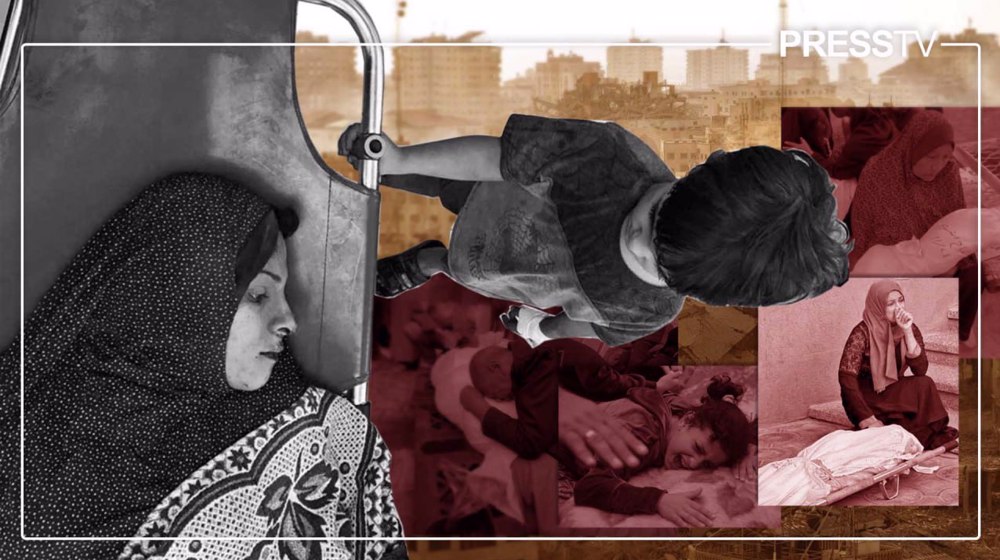
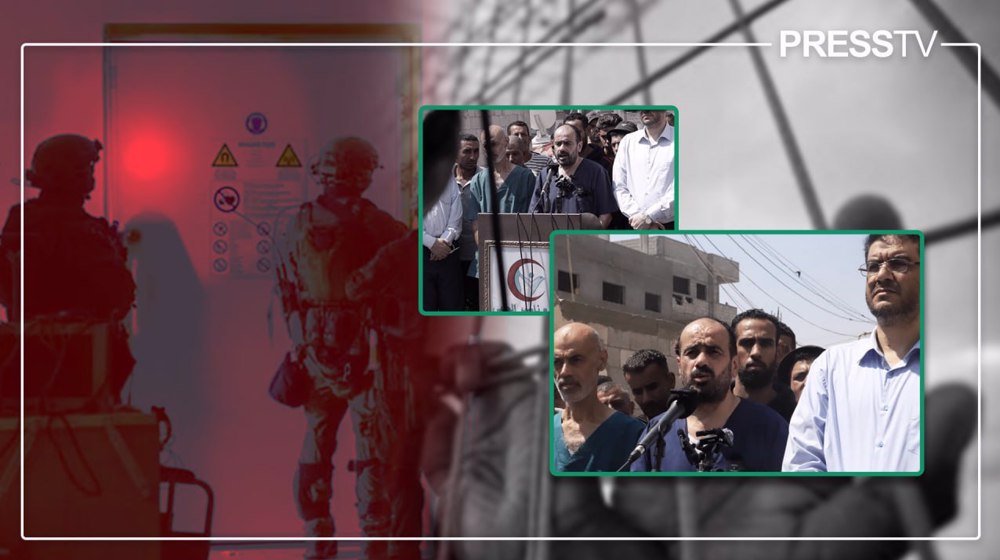
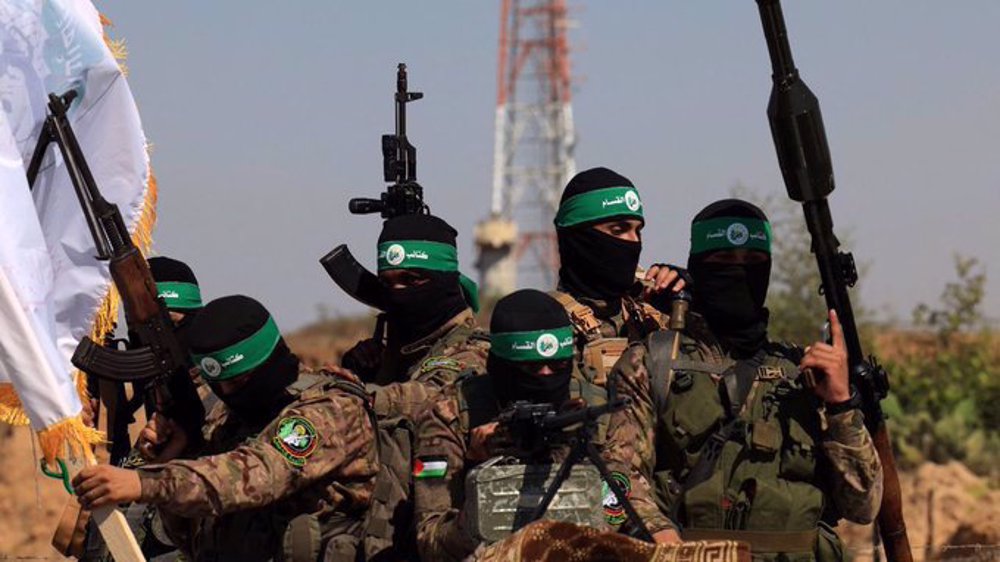
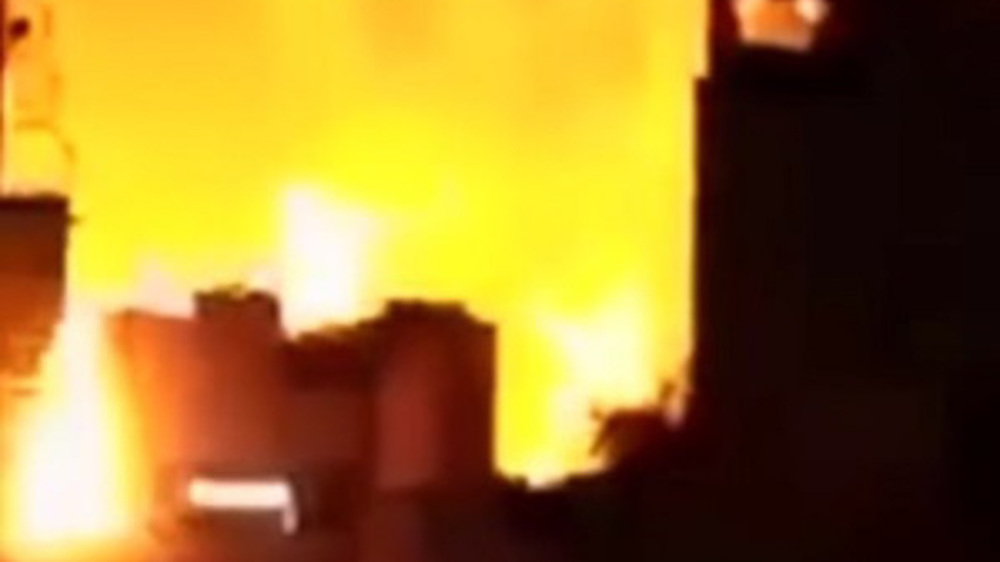
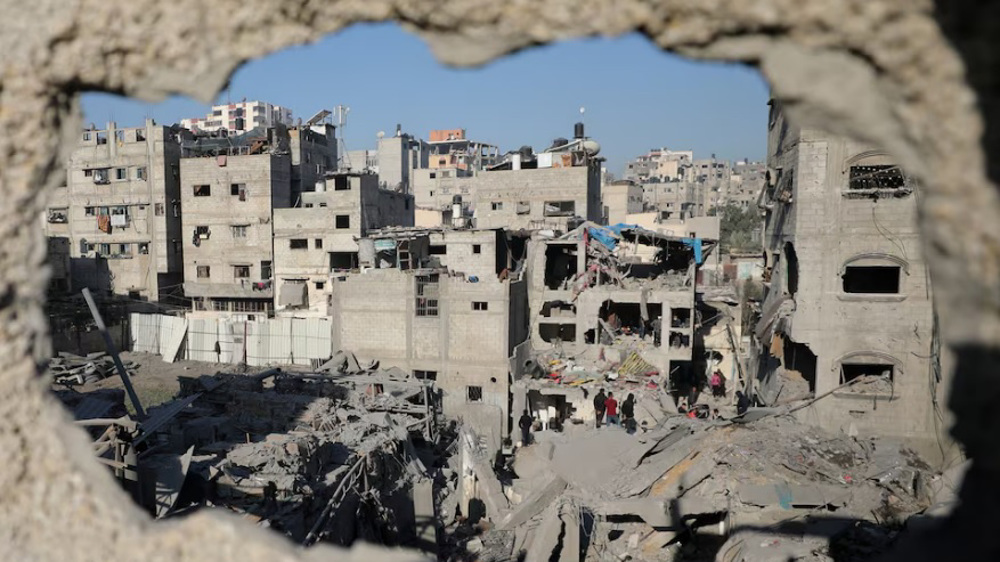



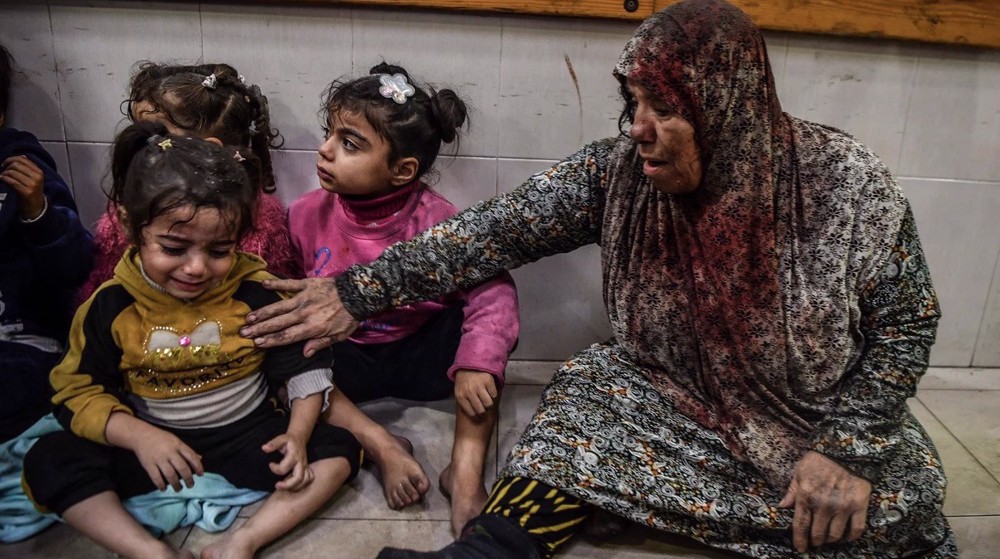
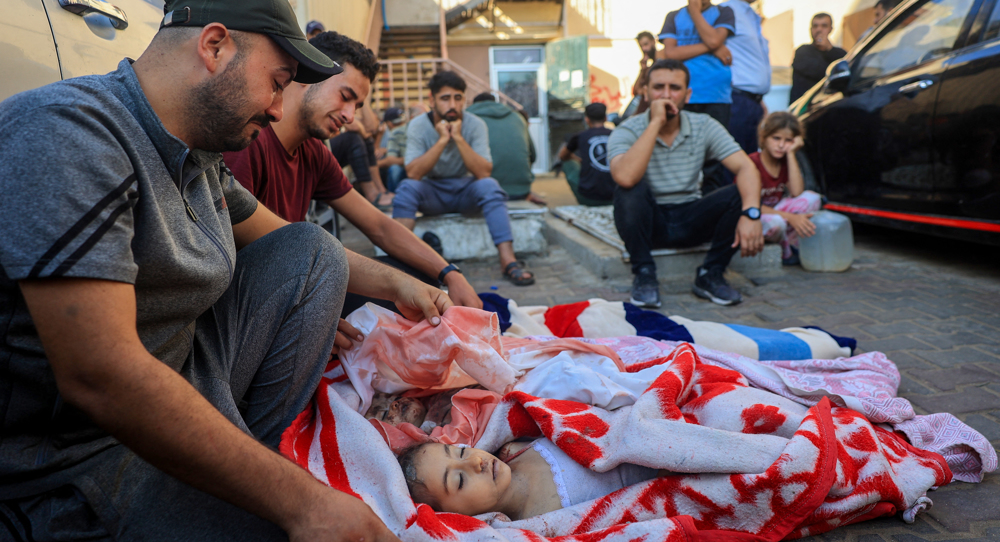
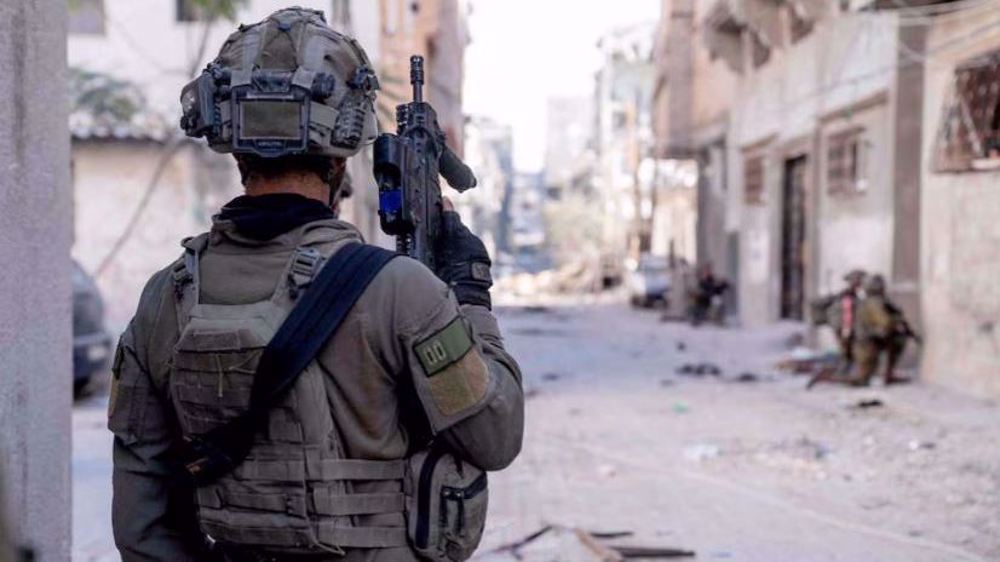
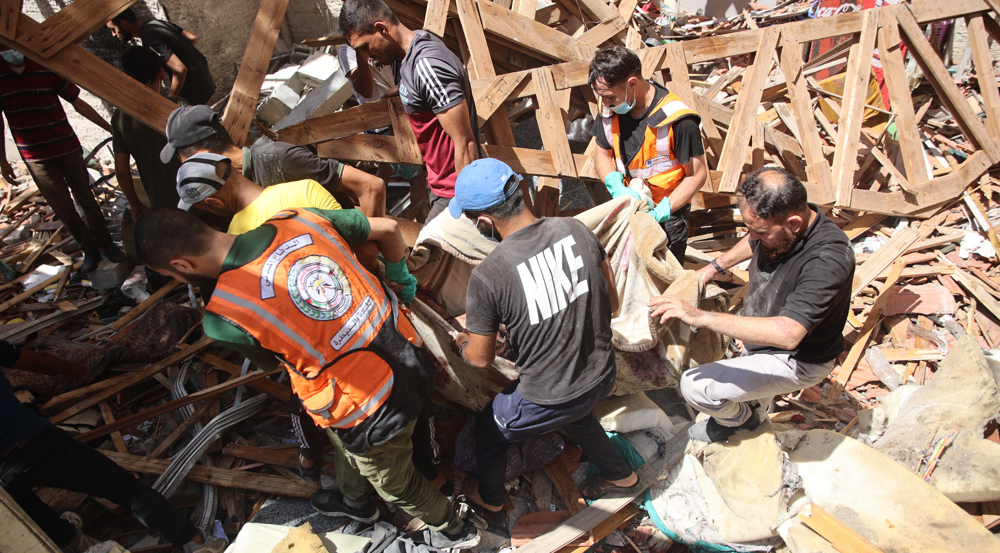
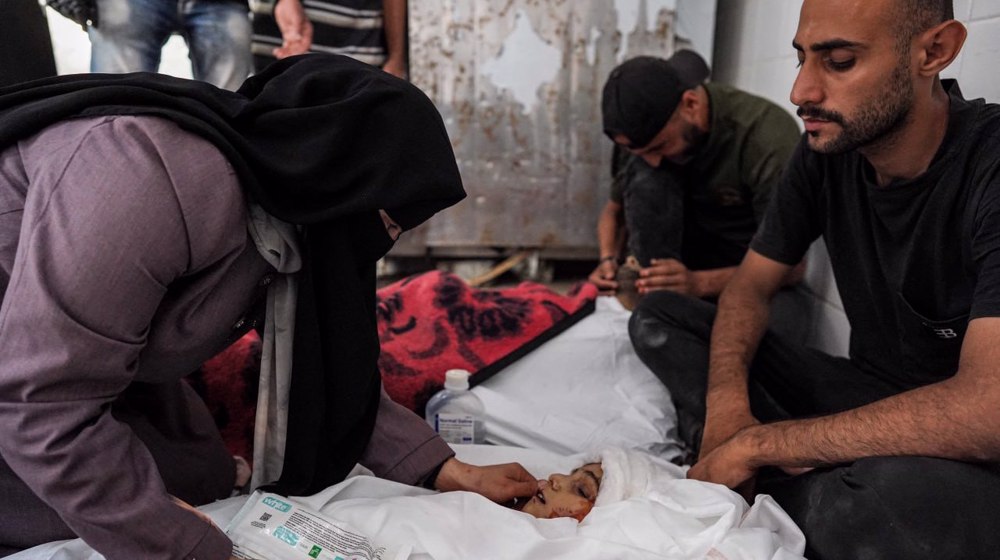

 This makes it easy to access the Press TV website
This makes it easy to access the Press TV website